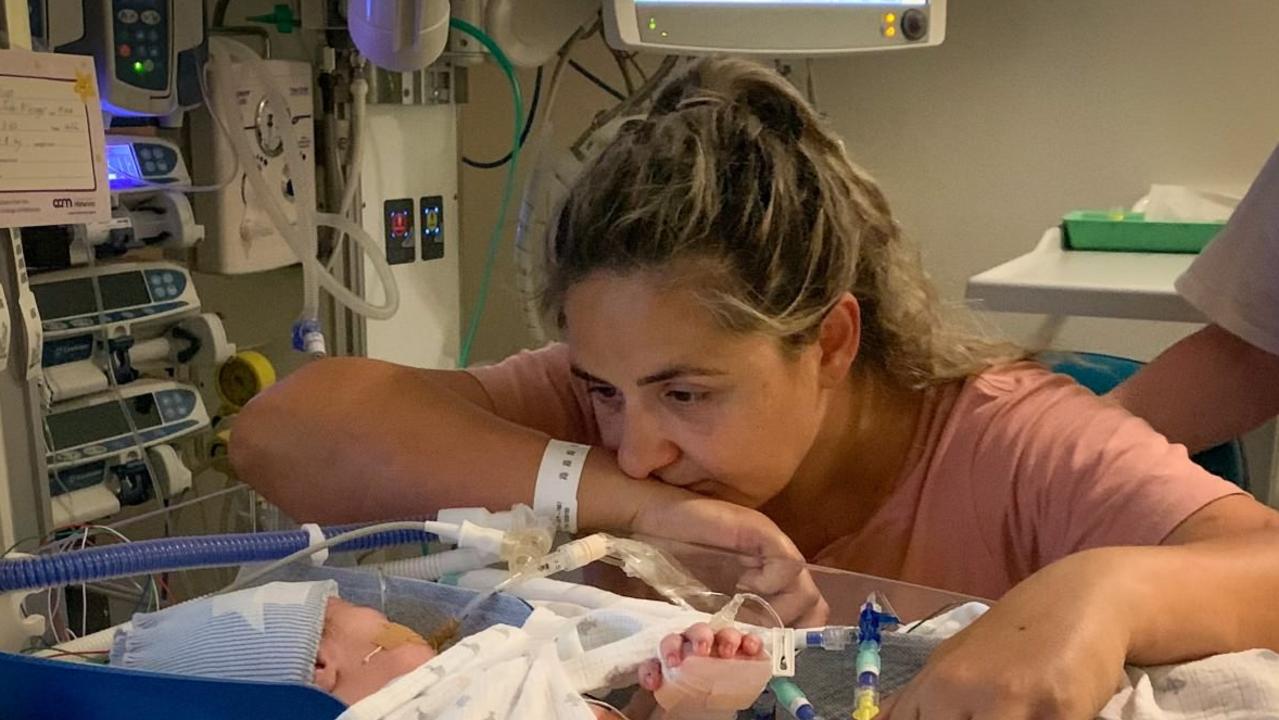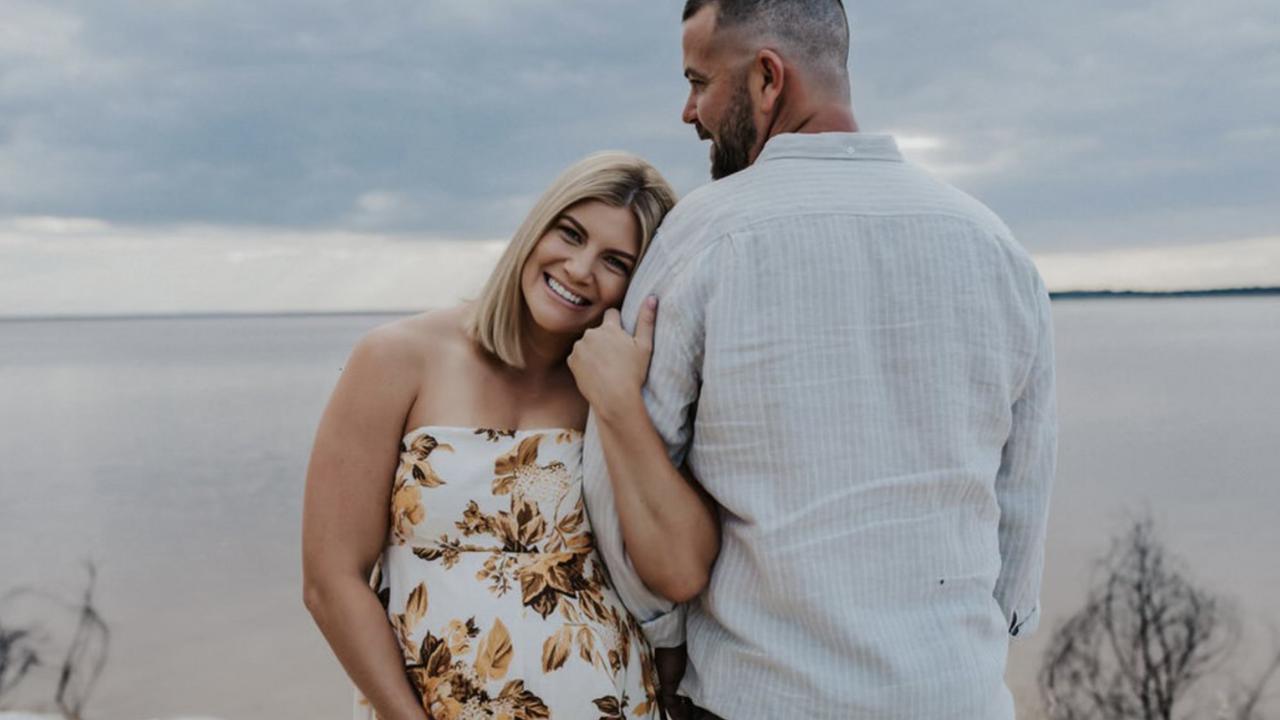Qld worst state for perinatal deaths as newborn deaths double in four years
The number of babies dying within a month of being born in Queensland is higher than any other state and has almost doubled in four years.
The number of babies dying within a month of birth has almost doubled since 2018, the year the state’s biggest ever review into maternity services was launched by then health minister Steven Miles.
Shock new data released by the Productivity Commission shows thousands of babies have been lost in the perinatal and neonatal stage since the landmark launch of the Queensland Maternity Taskforce, which was set up to make sweeping changes to “minimise risk for mothers and babies in rural and remote communities”.
A Maternity Summit followed in June 2019.
The taskforce was established following reports in The Sunday Mail that newborns were dying at a higher rate in Queensland country towns with no maternity services.
But the disturbing new statistics show there were 720 perinatal deaths in the state in 2022 – a rate of 11.5 deaths per 1000 – and 488 in 2018 – a rate 7.8 per 1000.
Of the states, Queensland has the highest number of perinatal deaths per 1000 births.
Only the Northern Territory is worse nationally.
The report has sparked a call for a clinical review from Health Minister Shannon Fentiman but maternity experts say review after review is proving pointless as the maternity crisis worsens.

“The data includes a rising number of stillbirths while neonatal deaths have remained stable. I want this review to look into why we have a high level of stillbirths,” Ms Fentiman told The Courier-Mail.
The Minister said she would work to make sure that Queensland’s perinatal deaths were the lowest in the future.
The data shows that of the 11.5 rate of deaths in 2022, 8.4 per cent accounted for stillbirths, while neonatal deaths were 3.1 per cent.
LNP health spokeswoman Ros Bates said the numbers exposed the level of maternity chaos in Queensland.
Ms Bates noted Mr Miles had ordered and produced the Rural Maternity Taskforce report in 2019, which had failed to decrease the number of deaths.
“Today we’re seeing Shannon Fentiman announcing yet another review – this is just review after review and the maternity crisis is not getting any better under the Labor government,” she said.
The year 2022 stands out as an “annus horribilis” in maternity services, with review findings showing failures at Mackay Base Hospital that led to the deaths of three babies.
In that year, Gladstone Hospital maternity, servicing a large regional community, went on bypass. Biloela also closed its doors.
National Association Specialist Obstetricians and Gynaecologists president Gino Pecoraro told The Courier-Mail he had been to countless maternity crisis meetings over the past few years and felt there had been no breakthrough on the problem.
“The true state of affairs may be even worse as perinatal mortality statistics don’t capture near misses or damaged but still alive babies, nor do they count damage, death or trauma to the mothers,” Professor Pecoraro said.

“Despite reassurances from the department and the minister, the Queensland maternity crisis is not sorted and this is at a time where the total number of births has decreased.
“Units being closed for extended periods of time, doctors not wanting to work for Queensland Health in the regions and almost daily pleas for obstetricians to come and provide locum services in Gladstone, Cairns, Rockhampton and Mackay as soon as possible show how desperate the situation has become.”
Rebecca Spreadborough fell pregnant with her baby boy Alby in 2022 after a long battle with infertility.
But Rebecca and her husband Tim lost their miracle boy after a horrific 18-hour obstructed labour at Emerald Hospital.
The devastating death is in the hands of the ombudsman.
“I was shocked to hear of how many babies are dying in Queensland. It is something you never get over and changes your lifefor ever. I want the politicians that are responsible for delivering maternity services to know that the death of a baby hasa ripple effect and hurts so many and hurts for ever,” she said.
“Fo me personally I feel that there was a lack of training in staff and a lack of clinical governance. I struggled with anobstructed labour but it felt that they didn’t know the best way to handle it. I was only 33 and in good health — a perfectcandidate to have a healthy baby. But it all went wrong,” she said.
Jenna and Andre McGregor also lost their baby boy Hugo after a “nightmare” experience at Mackay Base Hospital.
“We wanted to have the baby at Proserpine Hospital but they didn’t have an anaesthetist so we were sent to Mackay Base.
“The review on Mackay’s maternity had just come out and I told the doctor we didn’t want to go there as we didn’t feel confident.We were told that there was no choice,” Andre said.
The grieving dad said that it was a disgrace that basic maternity services were not available for Queenslanders. The coupleclaims they were the victims of poor medical decisions.
“And the government tries to tell us we have a world-class health system,” he said.
“What should have been the best day of our lives turned out to be the worst due a health system in crisis”

Alecia Staines, from the Maternity Consumer Network, said the extent of baby deaths across Queensland as revealed in the data was a disgrace.
“The number of deaths has nearly doubled in four years,” she said. “We know services have continued to close and outcomes certainly don’t improve with a lack of maternity services.
“We are a big state with lots of area to cover but the government must provide the services to improve outcomes for women and their families.”
A Queensland Health spokesman said the government was committed to understanding the causes behind perinatal deaths.
“Reasons for changes in perinatal mortality rates can be complex and include factors such as a mother’s age, overall health and socio-economic disadvantage. Queensland is one of the safest places in the country to give birth and we continue to invest significantly in measures to expand the level of maternity services,” the spokesman said.
“We have employed more than 7230 additional frontline health workers in the past three years, including 544 doctors, 1,731 nurses, 96 midwives in 2023 alone.
“We are investing $94m to further enhance maternity care, including regional, rural and remote birthing services.”





